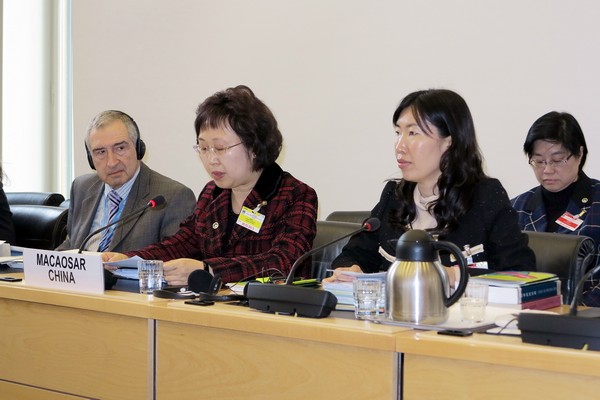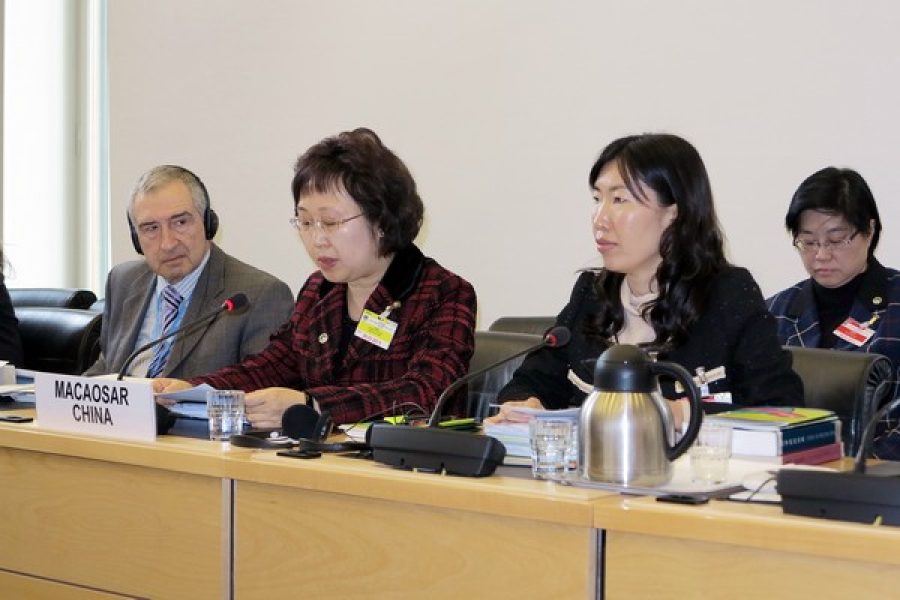The Human Rights Committee of the United Nations has urged the Macau government to introduce “universal and equal suffrage” and to set up an “independent statutory human rights institution.”
The UN body in Switzerland made the suggestions last week in its concluding observations on a report submitted by the Macau government, the first since the city’s return to Chinese administration in 1999. The committee adopted its observations on Wednesday.
The local government responded with a statement on Friday, pledging that it would continue to devote itself to implementing the International Covenant on Civil and Political Rights, which is recognised by Article 40 of the Macau Basic Law.
However the government said that it did “not agree” with the committee’s suggestion to introduce universal and equal suffrage in Macau, insisting that “the current election system accords with the actual situation” of Macau. It also said that the establishment of a “brand new” and independent human rights monitoring institution was “unnecessary.”
In its concluding observations, the Geneva-based committee said that the local government “should consider taking all preparatory measures with a view to introducing universal and equal suffrage in conformity with the [International] Covenant [on Civil and Political Rights] as a matter of priority.”
The committee said that the government “should outline a clear and comprehensive plan of action and set timelines for the transition of an electoral system based on universal and equal suffrage that will ensure enjoyment by all its citizens of the right to vote and stand for election” in compliance with the covenant.
The committee also urged the local government to ensure that the ombudsman’s made of the Commission Against Corruption (CCAC) is independent. It also recommended that alternatively the government should establish an independent statutory human rights institution, “with a broad human rights mandate, and provide it with adequate financial and human resources.”according to The Macau Post Daily.
The committee also said that it was “concerned at measures taken against journalists and social activists that create an environment discouraging the expression of critical positions or critical media reporting on matters of valid public interest and adversely affect the exercise of freedom of expression in Macau.”
The committee said it “regrets the lack of clarifications regarding the crime of abuse of freedom of the press and criminalisation of defamation.” It urged the government to ensure that journalists, social activists and [other] individuals are able to freely exercise their right to freedom of expression.”
It also urged the government to ensure “that the right of freedom of assembly is safeguarded in practice.”
According to the committee’s concluding observations, Macau’s next periodic report on the implementation of the International Covenant on Civil and Political Rights is slated to be submitted on March 30, 2018.
The local government responded to the committee’s observations by stating that it “has differences in the points of view on certain issues” with the committee.
However, the government pledged that it would “gradually implement” the committee’s suggestions as long as they are “practical and feasible and conform to the [Macau] Basic Law, the local law and the actual [local] society.”
The government stressed that Macau’s election system must be in accordance with the Basic Law and a 2012 decision made by the Standing Committee of the National People’s Congress (NPC).
According to the decision, Macau’s legislature is to be composed of 14 directly- and 12 indirectly-elected members and seven members appointed by the chief executive. While the directly-elected seats are chosen by the general electorate, the indirectly-elected seats are chosen by representatives of officially registered associations. The chief executive is chosen by an electoral committee.
“The current election system accords with the actual situation” of Macau,” the government said, pointing out that the covenant does not prohibit reservations to some of its articles. The government also said that the central government submitted a reservation related to the local election system to the depository of the covenant in 1999, when Macau reverted from Chinese to Portuguese administration.
The government also said the establishment of an independent human rights monitoring institution in Macau was “unnecessary” since human rights were “already fully protected” in Macau.
The government also said that Macau “has a sound and independent judicial system” and that the independence of the Commission Against Corruption is not affected by the fact that its chief is appointed by the chief executive.
An 18-member Macau delegation headed by Secretary of Administration and Justice Florinda Chan Lai Man attended the committee’s meeting about Macau’s official report in Geneva on March 18 and 19.(macaunews)






